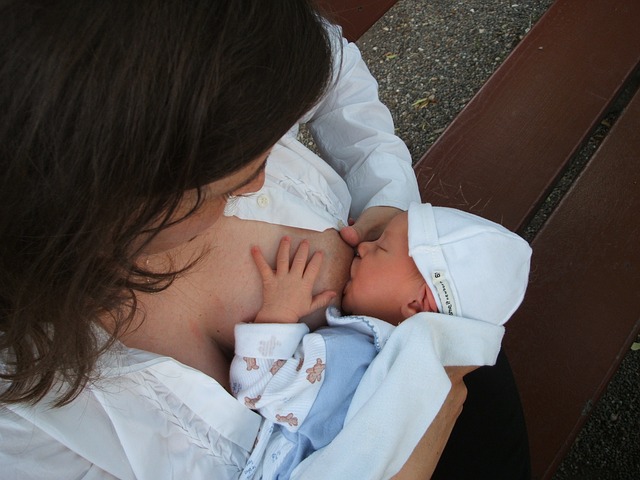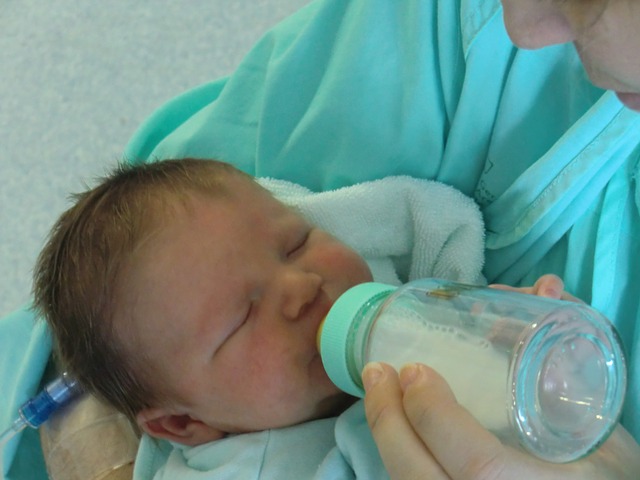Feeding a newborn is an important part of the child’s development. As the mother or father, you have to feed your newborn in order to help them grow and develop properly. It can be a difficult process, but it doesn’t have to be! In this article, we will discuss how best to feed your newborn with these tips that are easy for mothers and fathers alike.

Make sure you have a good milk supply
The first thing you should do is make sure that your milk supply will be adequate for your newborn. This means eating well and staying hydrated while breastfeeding, which can give the body good nutrients to feed the baby. If there are problems with this or if it takes longer than expected, then consult a doctor immediately, so they can help resolve any issues that may arise.
Just because babies cannot eat solid food yet doesn’t mean their digestive systems aren’t ready! The newborn stomach produces enzymes like pepsin (used for digestion), lipase (breaks down fat), and rennin (needed for the proper clotting of blood). These show how important solid food is earlier on. However, doctors recommend waiting until four months before introducing solids into their diet.
After the newborn is four months old, you can start introducing solid food gradually into their diet to help them grow properly. If your baby has any allergies or dietary restrictions, then it may be best to consult a doctor before making changes to their diet – especially if they are breastfeeding!
As always, when in doubt, check with a medical professional first instead of trying out new things on your own without knowing for sure that it will work well for everyone involved. It’s also important not to rush into feeding solids after just one month because this could cause complications later down the line, so try and wait at least till around six months before starting solid foods regularly, even though babies’ stomachs are ready earlier than that!
Find a feeding schedule that suits your lifestyle and baby’s needs
Every newborn is different, so trying to find the right feeding schedule for you and your newborn might be difficult.
A newborn’s stomach can only hold about one ounce of milk in it at a time, which makes scheduling feedings very important. Some babies may eat every two hours, while others need more food in them before they are ready to go another round – this also depends on their age! We all know that the milk coming out of baby’s nose after feeding is not normal. But what causes it? Sometimes it’s vomiting, or it could be a sign of slight discomfort.
If your newborn needs to nurse or eat, then do not hesitate because that’s what they are there for. But if you feel like they don’t necessarily need any food at all, try delaying by half an hour before giving them something, just in case. This will help keep things consistent when creating a routine early on during their development stages, with consistency being extremely key.
Wait until the newborn is six months old to start introducing solid food because newborns need as many nutrients as they can get from their mothers. However, if your newborn seems hungry, and you don’t think they will stop crying unless they eat something, then do not hesitate to feed them! Just make sure that you use a schedule for at least three days before making any changes so that you can see how things work out and what needs to be adjusted accordingly moving forward.
Know the signs of hunger, fullness, and discomfort to know when to feed your newborn
Newborns have a lot of gas in their bellies and this can cause stomach pain. If your newborn does not seem satisfied after eating, then try burping them or changing their position to get rid of that excess air before feeding again.
If the baby is still fussy even after being fed, it could be because they are uncomfortable due to wind, which means you should feed more often during the day if possible until things calm down for everyone involved. You might want to wait 30 minutes or so between each meal, but make sure you don’t let too much time pass without nourishing your newborn with something healthy.
Learn how to burp your newborn properly, so they don’t spit up too much or get gas-y
There are two different kinds of burps – wet and dry. A newborn will have a lot of saliva in their mouth, which over time turns into the excess fluid that needs to come out somehow, so the best way is through burping or spitting up!
If your newborn spits up after eating, you might want to let them sit upright for about 20 minutes before laying back down again if it doesn’t stop completely on its own. If they continue vomiting, then take them to the doctor right away because this could be something more serious than just gas or spit-up due to stomach discomfort from being full too fast.
Get comfortable with breastfeeding in public – it’s okay!
There’s no need to be embarrassed in public if you are breastfeeding your newborn. You can either choose to feed them discreetly or do it out in the open depending on what makes you more comfortable because this is a natural process that newborns go through when they eat!
It might feel awkward at first, but just remember that everyone was new once and most people will respect your decision when feeding your newborn when they’re hungry, so long as nobody else around seems uncomfortable with things either way.
So try not to stress too much about how others perceive you while trying to get food into a newborn – there’s nothing wrong with doing something good for their health, even if some take offense from seeing a mother breastfeed her child in front of others whom she may or may not know.

Your newborn is so fragile and needs your help to thrive. With these tips, you’ll be able to feed them the right way without worrying about hurting their feelings or making a mistake. Now that you know how important it is for babies to eat as often as they need to, what are some of the other things on this list that have been challenging?










